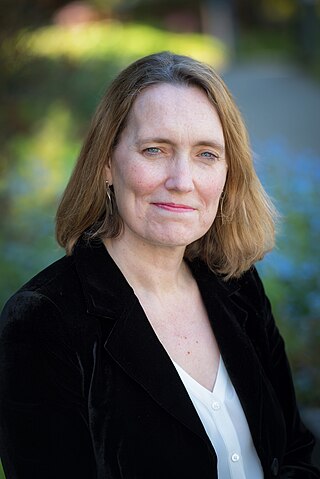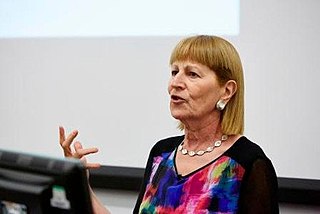Related Research Articles

Manuel Castells Oliván is a Spanish sociologist. He is well known for his authorship of a trilogy of works, entitled The Information Age: Economy, Society and Culture. He is a scholar of the information society, communication and globalization.
Ecological modernization is a school of thought that argues that both the state and the market can work together to protect the environment. It has gained increasing attention among scholars and policymakers in the last several decades internationally. It is an analytical approach as well as a policy strategy and environmental discourse.

Socioeconomics is the social science that studies how economic activity affects and is shaped by social processes. In general it analyzes how modern societies progress, stagnate, or regress because of their local or regional economy, or the global economy.

Herman Edward Daly was an American ecological and Georgist economist and professor at the School of Public Policy of University of Maryland, College Park in the United States, best known for his time as a senior economist at the World Bank from 1988 to 1994. In 1996, he was awarded the Right Livelihood Award for "defining a path of ecological economics that integrates the key elements of ethics, quality of life, environment and community."

Catherine Dauvergne was a former Vice-President, Academic and Provost of Simon Fraser University. Previously, she was Dean of the Peter A. Allard School of Law at the University of British Columbia from 2015 to 2020, and prior to this Dauvergne researched refugee, immigration, and citizenship law as a professor.
David Jonathan Andrew Held was a British political scientist who specialised in political theory and international relations. He held a joint appointment as Professor of Politics and International Relations, and was Master of University College, at Durham University until his death. He was also a visiting Professor of Political Science at Libera Università Internazionale degli Studi Sociali Guido Carli. Previously he was the Graham Wallas chair of Political Science and the co-director of the Centre for the Study of Global Governance at the London School of Economics.

Geoffrey Martin Hodgson is Emeritus Professor in Management at the London campus of Loughborough University, and also the editor-in-chief of the Journal of Institutional Economics.
Zoltan J. Acs is an American economist. He is Professor of Management at The London School of Economics (LSE), and a professor at George Mason University, where he teaches in the Schar School of Policy and Government and is the Director of the Center for Entrepreneurship and Public Policy. He is also a visiting professor at Imperial College Business School in London and affiliated with the University of Pecs in Hungary. He is co-editor and founder of Small Business Economics.

Edward Elgar Publishing is a global publisher of academic books, journals and online resources in the social sciences and law. The company also publishes a social science and law blog with regular contributions from leading scholars.

Barbara Czarniawska is an organization scholar.

Bob Jessop is a British academic who has published extensively on state theory and political economy. He is currently Distinguished Professor of Sociology at the University of Lancaster.
Colin Hay is Professor of Political Sciences at Sciences Po, Paris and Affiliate Professor of Political Analysis at the University of Sheffield, joint editor-in-chief of the journal Comparative European Politics. and Managing Editor of the journal New Political Economy.

Judy Wajcman, is the Anthony Giddens Professor of Sociology at the London School of Economics and Political Science. She is the Principal Investigator of the Women in Data Science and AI project at The Alan Turing Institute. She is also a visiting professor at the Oxford Internet Institute. Her scholarly interests encompass the sociology of work, science and technology studies, gender theory, and organizational analysis. Her work has been translated into French, German, Greek, Italian, Korean, Japanese, Portuguese, Russian, Chinese and Spanish. Prior to joining the LSE in 2009, she was a Professor of Sociology in the Research School of Social Sciences at the Australian National University. She was the first woman to be appointed the Norman Laski Research Fellow (1978–80) at St. John's College, Cambridge. In 1997 she was elected Fellow of the Academy of the Social Sciences in Australia.

Andrew Wen-Chuan Lo is the Charles E. and Susan T. Harris Professor of Finance at the MIT Sloan School of Management. Lo is the author of many academic articles in finance and financial economics. He founded AlphaSimplex Group in 1999 and served as chairman and chief investment strategist until 2018 when he transitioned to his current role as chairman emeritus and senior advisor.
Mohan Munasinghe is a Sri Lankan physicist, engineer and economist with a focus on energy, water resources, sustainable development and climate change. He was the 2021 Blue Planet Prize Laureate, and Vice-Chair of the Intergovernmental Panel on Climate Change (IPCC), which shared the 2007 Nobel Peace Prize with former Vice-President of the United States Al Gore. Munasinghe is the Founder Chairman of the Munasinghe Institute for Development. He has also served as an honorary senior advisor to the government of Sri Lanka since 1980.
Green theory is a theory of International Relations (IR). In contrast to mainstream theories of IR, it posits environmental issues as central to the study of international relations. According to green theory, mainstream theories like neorealism and neoliberalism fail to understand environmental problems through their rationalist and state-centric frameworks of analysis. Green theory focuses on the study of global justice, international development, modernization, and security. Green perspectives in IR emerged in the 1970s as a response to the increase of transnational issues related to the environment. By the end of the 20th century, green theory had established itself within the discipline. Green theory aligns itself with postpositivism that emerged from the so-called third debate of IR. The theory can be divided into an International political economy (IPE) oriented wing and a cosmopolitan wing. Initially, the IPE wing, mainly interested in environmental regimes, was stronger, but subsequently many cosmopolitan theorists, like David Held, Andrew Linklater, Henry Shue, and Thomas Pogge, have made contributions related to environmental issues.

Murray Milgate, is an Australian-born academic economist and Sometime Fellow and director of studies in economics at Queens' College in the University of Cambridge, where he is now a Life Fellow. He is the co-creator and co-editor of the celebrated original edition of The New Palgrave Dictionary of Economics (1987) together with John Eatwell and Peter Newman.
Doris Fuchs is a German Political Scientist and Professor of International Relations and Sustainable Development at the University of Münster.
Raymond L. Bryant is a British-Canadian geographer and Professor Emeritus of Political Ecology at King's College London. He is known for his founding contributions to the interdisciplinary field of political ecology.
Peter J. Rimmer is an English-born economic and human geographer concerned with urban and regional development within the Asian-Pacific Rim with a particular emphasis on the role of communications, transport and logistics.
References
- ↑ Peter Dauvergne, Department of Political Science, University of British Columbia, https://politics.ubc.ca/persons/peter-dauvergne/
- ↑ "Shady Forests, Shady Customers and Shonky Deals. Review of the book Shadows in the Forest", The Rainforest Information Center.
- ↑ Sprout Award, International Studies Association, http://environmental-studies.org/?page_id=3
- ↑ Lam, P.E (2004) Review [ dead link ]: Loggers and Degradation in the Asia-Pacific: Corporations and Environmental Management. Peter Dauvergne. Cambridge: Cambridge University Press, 2001,202 pp. ISBN 052100134X. International Relations of the Asia-Pacific (4):2, 327 - 328
- ↑ Foye Hatton. Review Archived 2015-09-08 at the Wayback Machine of Peter Dauvergne, The Shadows of Consumption: Consequences for the Global Environment (MIT, 2008), Sustainability: Science, Practice, & Policy 5 (2) (Fall 2009).
- ↑ Linda Nowlan (2017): Reigniting a spirit of outrage on Earth Day. https://www.wcel.org/blog/reigniting-spirit-outrage-earth-day#:~:text=Today%2C%20April%2022%2C%20we%20celebrate,celebrate%20our%20love%20of%20nature
- ↑ "FIDE Chess Profile: Dauvergne, Peter", World Chess Federation
- ↑ Dauvergne, Peter (July 2000), "The Case for Chess as a Tool to Develop Our Children's Minds", Australian Chess Federation.
- ↑ ISA: Environmental Studies Section, ESS Distinguished Scholar Award 2016, Peter Dauvergne, http://environmental-studies.org/?p=395
- ↑ "American Political Science Association > MEMBERSHIP > Organized Sections > Organized Section 27: Michael Harrington Book Award".
- ↑ The Royal Society of Canada, Fellows, https://rsc-src.ca/en/fellows